You know how doctors in the 1930’s used to prescribe cigarettes to our grandparents? And then after a bit of research and a few million cases of death from throat cancer and lung disease, it turned out that smoking wasn’t so great for you after all?
“Whoops! Sorry about that guys. Turns out, cigarettes are not good for your health at all. In fact, they are incredibly bad for you. So we’re not going to advertise, glamourise or extol the benefits of smoking anymore, because, well, there aren’t any benefits to smoking. Sorry if you got addicted. That’s a shame. Try to stop. Hopefully that sort of thing won’t happen again. Now, who’s up for a few drinks?”
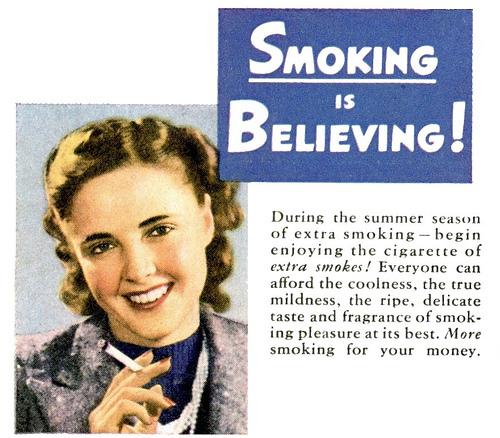
Smoking is believing that it wont give you cancer, chums
Well, hold onto your trollies because a recent study found that drinking alcohol can directly cause at least seven types of cancer. Even people who’d consider themselves to be moderate drinkers are still putting themselves at significant risk.
Remember not so long ago when we were told that red wine was good for our hearts? Well, it’s not. In fact it’s terrible for all of our vital organs and that’s because alcohol is a poisonous neurotoxin and isn’t really fit for human consumption. We like drinking it though, and it’s a bit moreish, so we carry on regardless.

Yes, this red wine drinker looks the very picture of good health.
You see, being drunk, feeling sick, blacking out, throwing up, falling down, losing our faculties and inhibitions, manners, balance, money, dignity, consciousness and nursing endless hangovers – every single one of these things, whenever suffered, is a glaring warning sign – a bright red, frantically flapping flag of forewarning – that our bodies cannot cope with the amount of alcohol we’re ingesting.
All of the above are clear indications that you have poisoned yourself. You’ve gone too far, and your body hates you for it. Yet we do it again and again, because it’s what we’ve always done, and it’s what everyone else has always done, and there’s nothing wrong with it, is there? There can’t be, because it’s all so normal and commonplace.
But then so is cancer. Cancer is commonplace too, isn’t it? It’s the awful everyday tragedy that we all continuously rail against and raise money for and wonder how this could have happened to people like us. And now another clear cause has been identified. A new scientifically proven connection between our out of control drinking habits and our worsening collective health as a society – excessive alcohol consumption causes cancer.
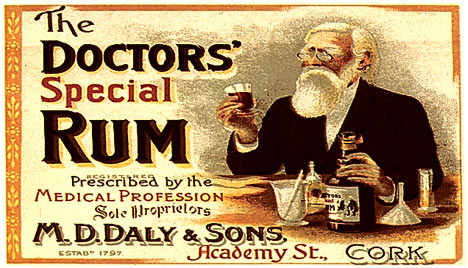
A doctors advice is only as good as the scientific evidence available to them at the time
It’s up to us, every single one of us, to start taking far better care of ourselves. We have to take responsibility for our own health. We have to wake up and listen to what the experts have now discovered or keep ignoring it at our peril. We can’t keep flagrantly disregarding the latest damning evidence simply because it’s not what we want to hear.
If we’re going to drink, then we must learn to drink responsibly, truly responsibly, every time we imbibe. (There are clear official guidelines to help you do this, printed below, if you think you’re capable – although it’s increasingly apparent that most people simply aren’t capable, regardless of what they think.)

Me, a few years ago, smoking and drinking, because why have one bad habit when you can have two?
Choosing to go teetotal shouldn’t be seen as an unfortunate consequence, but as the superior lifestyle choice that it is. To those people who still drink heavily and regularly, I’m not necessarily suggesting that you don’t drink at all, but I am suggesting that you ask yourselves why you feel the need to. Sadly people can hide debilitating dependencies for years behind the guise of ‘a harmless habit’ if they’re committed enough to keeping things the same. I know, because I did it myself.
We have to stop collectively drowning our sorrows upon hearing bad news and toasting to celebrate anything good. Our lives should not revolve around drinking alcohol, any more than they should revolve around any other drug. We must stop being so ungrateful for our precious, amazing bodies, and stop being so reckless with our lives. Our health is finite, it will not keep being renewed regardless of how shoddily we treat it. We must stop pushing our minds and our bodies to the absolute upper limits of what they can cope with, because they can’t cope, not indefinitely.
We no longer expect to smoke for fifty years and emerge consequence free, so why are so many of us still so casually drinking to excess? (And drinking ‘to excess’ is significantly less than most people assume.) Our behaviour carries consequences that we can’t circumvent. We can keep hoping that we’ll be the exception to the rule; everyone knows that one guy who smoked their whole life and lived to be 90, but we all know of far more who have had cancer scares and survived after gruelling treatment, or who have died too young.
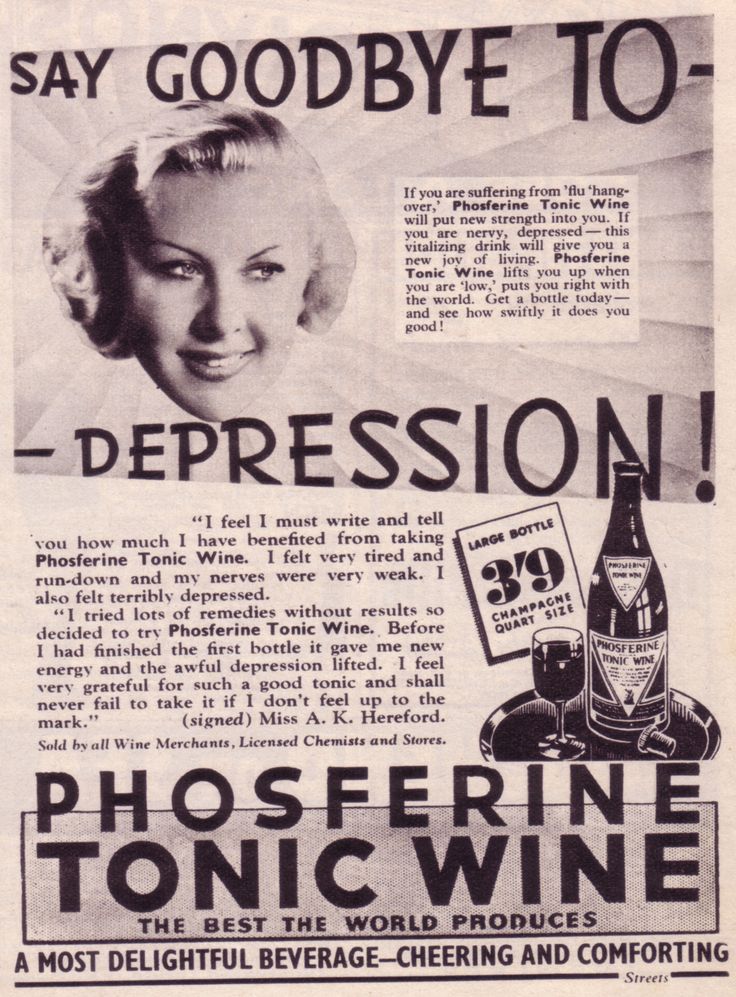
It may appear to alleviate depression but alcohol is a depressant in itself. It’s a lying little gitstack.
You might be under the mistaken impression that after a binge, once you sober up, the alcohol leaves your body and everything reverts back to normal, but this is not the case. Changes take place on a cellular level. Damage is done; some of it obvious and temporary, some of it imperceptible, surreptitious and irreversible.
The new study, which was published in the scientific journal ‘Addiction’, states that there is now sound evidence to conclude that drinking alcohol can cause cancers of the oropharynx, larynx, oesophagus, liver, colon, rectum and breast. Furthermore, there is increasing evidence to suggest that alcohol is also likely to cause skin, prostate and pancreatic cancer too.
The most recent UK government guidelines on safe* drinking limits, issued in January 2016 by its Chief Medical Officers, recommend that both men and women do not exceed 14 units per week. This official maximum recommendation is also not ever meant to be consumed in one go. It’s meant to be spaced out over the course of a week, factoring in at least a couple of alcohol-free days too.
One unit of alcohol is the equivalent to:
A single measure (25ml) of spirits (ABV 37.5%)
Or
Half a pint of average-strength (ABV 4%) lager
Or
Half a small (125ml) glass of average-strength (ABV 12%) wine
To put it in a more colloquial way, the weekly recommended upper limit would approximately translate to:
7 double gin and tonics over the course of a week
Or
7 pints of lager over the course of a week
Or
Approximately one and a half bottles of wine over the course of a week
So, ideally that’d work out as no more than a couple of drinks on two nights during the week and then up to 3 drinks max on one of the weekend nights. That’s the brand new, up to date, latest medical health information. These official recommendations are the results of years of intensive studies and pioneering medical research. And yet the majority of drinkers are still blithely ignoring it as though the information doesn’t apply to them. Walk into any busy bar on a Saturday night and see for yourself. I only have to think back to my drinking days; I could never accept that the guidelines were reasonable. “I can drink double that in one go.” I’d think, incredulous. And I often did. I finally realised that just because I could drink that much, certainly didn’t mean that I should.
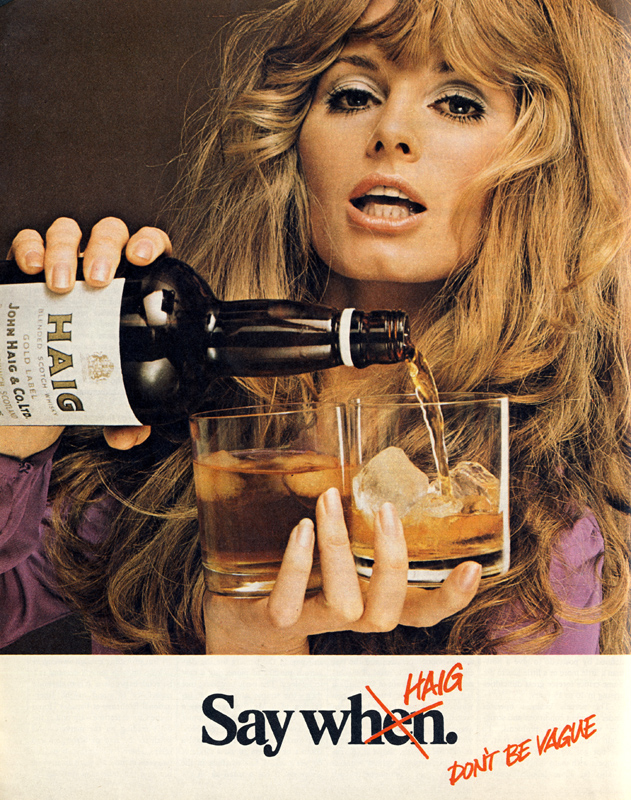
The woman in this ad looks in no way absolutely hammered.
I’ve socialised with people who’ll tell me how lucky they are never to have had a drink problem as they knock back twice the weekly recommended limit before my eyes. They understandably lose all control of themselves, have raging hangovers the next day and drink more booze with brunch. They’ve been doing it for years, it’s exactly what I used to do too, but they have no intention of changing because they don’t see anything wrong with it, even though they are clearly suffering with visible health concerns and they complain of depression and anxiety. They don’t see their drinking habit as any part of the problem – quite the opposite, they see it as the solution.
It’s absolutely crazy to me now, nearly three years on since I last drank alcohol, to think that I ever drank in that same way, but I did, and with the benefit of hindsight and an extended period of total abstinence, I know that I would never want to revert back to that level of dependence and denial.
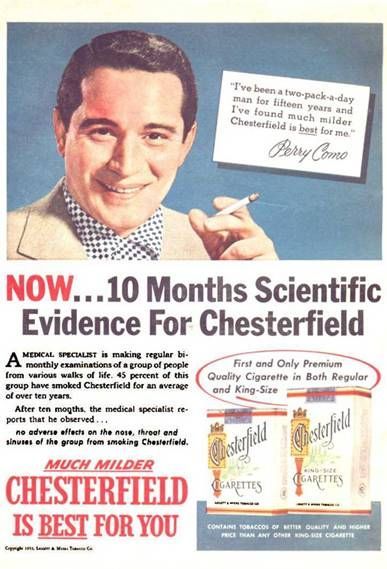
Well, if Perry Como says its alright…
Drinking is undoubtedly following a similar trajectory to smoking. People used to be proud to smoke. They believed it would give them credibility and courage but instead it gave them cancer and emphysema. So many of us still believe that drinking helps us to relax and gives us the freedom to enjoy ourselves, but it doesn’t, the exact opposite is true; it makes us weak, sick, docile and dependent. The great news is though, that it’s never too late to make a different choice.
*The UK government now officially states, with impressive candour that:
“There is no level of regular drinking that can be considered as completely safe”.
